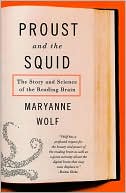Category Books
- Fiction Books & Literature
- Graphic Novels
- Horror
- Mystery & Crime
- Poetry
- Romance Books
- Science Fiction & Fantasy
- Thrillers
- Westerns
- Ages 0-2
- Ages 3-5
- Ages 6-8
- Ages 9-12
- Teens
- Children's Books
- African Americans
- Antiques & Collectibles
- Art, Architecture & Photography
- Bibles & Bible Studies
- Biography
- Business Books
- Christianity
- Computer Books & Technology Books
- Cookbooks, Food & Wine
- Crafts & Hobbies Books
- Education & Teaching
- Engineering
- Entertainment
- Foreign Languages
- Game Books
- Gay & Lesbian
- Health Books, Diet & Fitness Books
- History
- Home & Garden
- Humor Books
- Judaism & Judaica
- Law
- Medical Books
- New Age & Spirituality
- Nonfiction
- Parenting & Family
- Pets
- Philosophy
- Political Books & Current Events Books
- Psychology & Psychotherapy
- Reference
- Religion Books
- Science & Nature
- Self Improvement
- Sex & Relationships
- Social Sciences
- Sports & Adventure
- Study Guides & Test Prep
- Travel
- True Crime
- Weddings
- Women's Studies
Proust and the Squid: The Story and Science of the Reading Brain » (Reprint)

Authors: Maryanne Wolf, Catherine Stoodley
ISBN-13: 9780060933845, ISBN-10: 0060933844
Format: Paperback
Publisher: HarperCollins Publishers
Date Published: August 2008
Edition: Reprint
Author Biography: Maryanne Wolf
Maryanne Wolf is a professor of child development at Tufts University, where she is also the director of the Center for Reading and Language Research. She lives in Cambridge, Massachusetts.
Book Synopsis
The act of reading is a miracle. Every new reader's brain possesses the extraordinary capacity to rearrange itself beyond its original abilities in order to understand written symbols. But how does the brain learn to read? As world-renowned cognitive neuroscientist and scholar of reading Maryanne Wolf explains in this impassioned book, we taught our brain to read only a few thousand years ago, and in the process changed the intellectual evolution of our species.
Wolf tells us that the brain that examined tiny clay tablets in the cuneiform script of the Sumerians is configured differently from the brain that reads alphabets or of one literate in today's technology.
There are critical implications to such an evolving brain. Just as writing reduced the need for memory, the proliferation of information and the particular requirements of digital culture may short-circuit some of written language's unique contributions--with potentially profound consequences for our future.
Turning her attention to the development of the individual reading brain, Wolf draws on her expertise in dyslexia to investigate what happens when the brain finds it difficult to read. Interweaving her vast knowledge of neuroscience, psychology, literature, and linguistics, Wolf takes the reader from the brains of a pre-literate Homer to a literacy-ambivalent Plato, from an infant listening to Goodnight Moon to an expert reader of Proust, and finally to an often misunderstood child with dyslexia whose gifts may be as real as the challenges he or she faces.
As we come to appreciate how the evolution and development of reading have changed the very arrangement of our brain and our intellectual life, we begin to realize with ever greater comprehension that we truly are what we read. Ambitious, provocative, and rich with examples, Proust and the Squid celebrates reading, one of the single most remarkable inventions in history. Once embarked on this magnificent story of the reading brain, you will never again take for granted your ability to absorb the written word.
Publishers Weekly
Wolf, a professor of child development at Tufts University, integrates psychology and archeology, linguistics and education, history and neuroscience in a truly pathbreaking look at the development of the reading brain-a complicated phenomenon that Wolf seeks to chronicle from both the early history of humanity and the early stages of an individual's development ("[u]nlike its component parts such as vision and speech... reading has no direct [genetic] program passing it on to future generations"). Along the way, Wolf introduces concepts like "word poverty," the situation in which children by age five have heard 32 million fewer words than their counterparts (with chilling long-term effects), and makes time for amusing and affecting anecdotes, such as the only child she knew to fake a reading disorder (in an attempt to get back into his beloved literacy training program). Though it could probably command a book of its own, the sizable third section of the book covers the complex topic of dyslexia, explaining clearly and expertly "what happens when the brain can't learn to read." One of those rare books that synthesizes cutting-edge, interdisciplinary research with the inviting tone of a curious, erudite friend (think Malcolm Gladwell), Wolf's first book for a general audience is an eye-opening winner and deserves a wide readership. (Sept.)
Copyright 2007 Reed Business InformationTable of Contents
Subjects
 Literary Criticism
Literary Criticism  Literary Reference
Literary ReferenceEducation & Teaching
 Special Education
Special Education  Education - Learning Disabilities
Education - Learning DisabilitiesEducation & Teaching
 Teaching Reading & Language
Teaching Reading & Language  Teaching - Reading
Teaching - ReadingMedical Books
 Medicine
Medicine  Basic Sciences
Basic SciencesNonfiction
 Psychology
Psychology  Psychological Disorders
Psychological DisordersScience & Nature
 All Science & Nature
All Science & Nature  Biology & Life Sciences
Biology & Life SciencesScience & Nature
 All Science & Nature
All Science & Nature  Science - General & Miscellaneous
Science - General & MiscellaneousNonfiction
 Medicine
Medicine  Medicine
MedicineNonfiction
 Science & Nature
Science & Nature  Biology
BiologyNonfiction
 Science & Nature
Science & Nature  All Science & Nature
All Science & Nature
